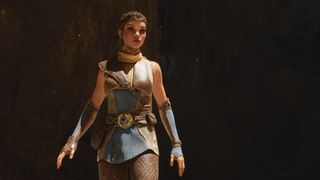Unreal Engine games no longer owe royalties on their first $1M in revenue
Epic used to collect royalties after $3,000 in revenue per quarter.

On top of unveiling Unreal Engine 5 today, Epic Games announced that developers who build games with the Unreal Engine will no longer pay royalties on their first $1 million in revenue.
The Unreal Engine has been free for anyone to use for a while, but until this change, 5 percent royalties were due on commercial Unreal Engine games once they made $3,000 in a quarter. This new $1 million threshold in is measured in lifetime revenue.
It isn't too complicated, but for example, a game which made $2 million in gross revenue would owe Epic Games $50,000, because it would pay 5 percent of $1 million, keeping the first million entirely—minus whatever other fees are owed, such as Steam's cut. (For revenue earned on the Epic Games Store, Epic still waives the five percent royalty fee entirely, so devs just owe the 12 percent Epic Store distribution fee.)
For comparison, Unity doesn't draw any royalties from commercial games. Instead, the engine maker charges $1,800 a year for Pro license, which is required for Unity installations in companies that have brought in $200,000 or more revenue or funding in the past 12 months. The Unity Pro license also includes source code access and other features not available in Unity's free versions.
This change to Epic's royalty model is retroactive to January 1, and you can see more about how Unreal Engine royalties work here.
Unreal Engine 5 will release next year, and like the latest version, will be free to use. The royalty scheme announced today will apply to all versions of the engine, and when the time comes, games made in Unreal Engine 4 can be moved to UE5—more details on that announcement here.
PC Gamer Newsletter
Sign up to get the best content of the week, and great gaming deals, as picked by the editors.

Tyler grew up in Silicon Valley during the '80s and '90s, playing games like Zork and Arkanoid on early PCs. He was later captivated by Myst, SimCity, Civilization, Command & Conquer, all the shooters they call "boomer shooters" now, and PS1 classic Bushido Blade (that's right: he had Bleem!). Tyler joined PC Gamer in 2011, and today he's focused on the site's news coverage. His hobbies include amateur boxing and adding to his 1,200-plus hours in Rocket League.
Most Popular


